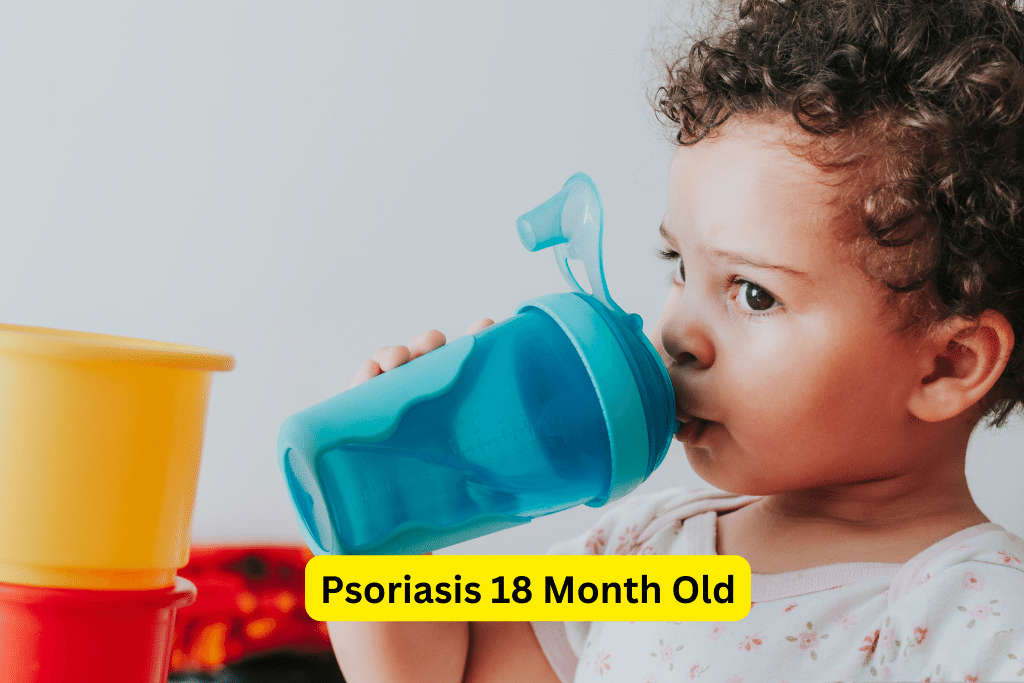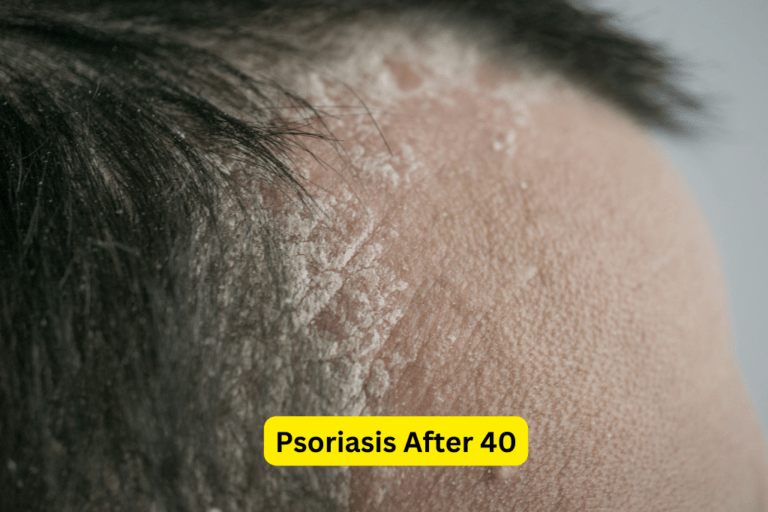Managing Psoriasis in 18-Month-Olds: Expert Tips for Success
Psoriasis 18 Month Old
Psoriasis is a chronic skin condition that can affect individuals of all ages, including 18-month-old children. It is characterized by red, scaly patches on the skin that can cause discomfort and itching. Understanding the causes, symptoms, and treatment options for psoriasis in young children is crucial for effective management. In this article, we will explore the causes, symptoms, and treatment options for psoriasis in 18-month-olds, as well as provide helpful tips for soothing their discomfort and managing this chronic condition.
Causes of Psoriasis in 18-Month-Olds
There are several factors that contribute to the development of psoriasis in 18-month-olds.
Genetic factors and family history
Genetics play a significant role in the development of psoriasis. Certain genes are known to be associated with psoriasis, and if a child has a family history of the condition, their likelihood of developing psoriasis is increased.
Environmental triggers
Environmental factors can also trigger psoriasis flare-ups in young children. Weather conditions, such as cold and dry climates, can aggravate the condition. Additionally, stress and emotional factors, as well as infections and illnesses, can also contribute to the development or worsening of psoriasis.
Symptoms of Psoriasis in 18-Month-Olds
Recognizing the symptoms of psoriasis in 18-month-olds is crucial for early diagnosis and treatment.
Red, scaly patches on the skin
One of the hallmark symptoms of psoriasis is the presence of red, scaly patches on the skin. These patches can appear on various parts of the body, such as the elbows, knees, scalp, and diaper area.
Itching and discomfort
The affected areas may be itchy and cause discomfort to the child. It is important to avoid scratching, as this can worsen the condition and lead to infections.
Nail abnormalities
Psoriasis can also affect the nails, causing them to become pitted, discolored, or brittle.
Psoriatic arthritis symptoms
In some cases, children with psoriasis may also experience symptoms of psoriatic arthritis. These symptoms can include joint pain, swelling, and a limited range of motion.
Diagnosing Psoriasis in 18-Month-Olds
Diagnosing psoriasis in 18-month-olds involves a thorough physical examination and medical history.
Physical examination and medical history
A healthcare provider will examine the child’s skin and inquire about any family history of psoriasis or other related conditions.
Dermatological tests and procedures
In certain cases, dermatological tests and procedures may be performed to confirm the diagnosis.
Skin biopsy
A skin biopsy involves taking a small sample of skin tissue for laboratory analysis, which can help confirm the diagnosis of psoriasis.
Differential diagnosis
In some cases, the healthcare provider may need to rule out other skin conditions that may present with similar symptoms to psoriasis.
Treatment Options for Psoriasis in 18-Month-Olds
While there is no cure for psoriasis, there are various treatment options available that can help manage the symptoms and provide relief for 18-month-olds.
Topical treatments
Topical treatments are often the first line of treatment for psoriasis in young children.
Emollients and moisturizers
Emollients and moisturizers can help hydrate the skin and alleviate dryness and itching.
Steroid creams and ointments
Steroid creams and ointments can help reduce inflammation and ease symptoms of psoriasis.
Calcineurin inhibitors
Calcineurin inhibitors such as tacrolimus and pimecrolimus can effectively manage psoriasis in sensitive areas like the face and genitals.
Phototherapy
Phototherapy involves exposing the skin to specific wavelengths of light to reduce inflammation and alleviate symptoms.
UVB therapy
UVB therapy involves exposing the skin to UVB light to slow down the growth of affected skin cells and reduce inflammation.
PUVA therapy
PUVA therapy combines the use of psoralen (a light-sensitive medication) with UVA light exposure to effectively manage psoriasis symptoms.
Systemic medications
In some cases, systemic medications may be prescribed for severe or widespread psoriasis in 18-month-olds. These medications work from within the body to manage inflammation and control symptoms.
Methotrexate
Methotrexate is an immunosuppressant medication that can help manage psoriasis in severe cases.
Cyclosporine
Cyclosporine is another medication that can be used to suppress the immune system and control psoriasis symptoms.
Lifestyle and home remedies
In addition to medical treatments, there are various lifestyle changes and home remedies that can help manage psoriasis in 18-month-olds.
Keeping the skin hydrated
Regularly moisturizing the skin helps alleviate dryness and reduce symptoms.
Avoiding triggers
Identifying and avoiding triggers such as harsh soaps, allergens, and stress can help prevent flare-ups.
Using mild, hypoallergenic products
Using gentle, hypoallergenic products, such as soaps and shampoos, can help minimize skin irritation.
Managing Psoriasis in 18-Month-Olds
Managing psoriasis in 18-month-olds requires a comprehensive approach.
Creating a supportive environment
Creating a supportive and understanding environment for the child is crucial for their emotional well-being.
Educating caregivers and family members
Providing education and resources to caregivers and family members helps ensure that everyone is knowledgeable about psoriasis and understands how to manage it effectively.
Regular follow-up with a healthcare provider
Regular follow-up visits with a healthcare provider are important to monitor the child’s progress and adjust treatment as needed.
Coping strategies for parents
Parents of children with psoriasis may experience emotional stress. Utilizing coping strategies and seeking emotional support can greatly assist in managing the condition.
Prevention and Tips for Soothing Discomfort
While psoriasis cannot be prevented entirely, there are steps that can be taken to reduce flare-ups and soothe discomfort.
Maintaining a healthy lifestyle
A healthy lifestyle can help manage psoriasis symptoms in 18-month-olds.
Balanced diet
A balanced diet that includes fruits, vegetables, lean proteins, and whole grains promotes overall health and can help manage psoriasis.
Adequate hydration
Staying hydrated by drinking enough water can help keep the skin moisturized and reduce dryness.
Regular exercise
Regular exercise can help reduce stress levels and boost overall well-being, which can contribute to managing psoriasis symptoms.
Protecting the skin
Protecting the skin from external irritants and harmful elements is crucial for managing psoriasis in 18-month-olds.
Sun protection
Protecting the skin from the sun’s harmful rays can prevent sunburn and minimize flare-ups.
Gentle skin care routine
Using gentle cleansers and avoiding harsh soaps or fragrances can help prevent skin irritation.
Stress management techniques
Since stress is a known trigger for psoriasis, teaching stress management techniques to the child and caregivers can help minimize flare-ups.
Relaxation exercises
Deep breathing exercises, yoga, and meditation can help reduce stress levels and promote relaxation.
Mindfulness techniques
Teaching the child and caregivers mindfulness techniques, such as focusing on the present moment, can help reduce stress and anxiety.
Conclusion
Psoriasis in 18-month-olds can be effectively managed with early diagnosis, appropriate treatment, and lifestyle modifications. By understanding the causes, symptoms, and treatment options for psoriasis in young children, parents and caregivers can provide the necessary support and care to help improve the child’s quality of life. It is essential to seek medical assistance and follow a comprehensive approach to ensure the best outcomes for children with psoriasis.
"Have You Seen Mike Walden's new holistic acne System yet? It's called "Acne No More" I've read the whole thing (all 223 pages) and there's some great information in there about how to naturally and permanently eliminate your acne without drugs, creams or any kind of gimmicks. I highly recommend it - it's very honest and straightforward without all the hype and b.s. you see all over the net these days. Here's the website where you can get more information:
Click Here -->AcneNoMore









